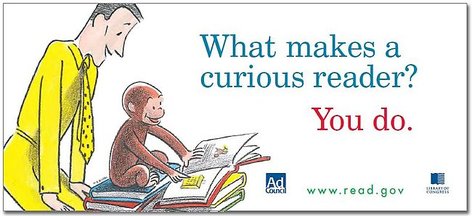Kimberly Aultman
I have always been passionate about helping young children develop to the best of their ability. Over the years, I have adopted the theory that the more knowledge and experiences I have the better prepared I will be to assist children in their social, emotional, cognitive, and physical development. In today's changing society, we are seeing more and more children entering school without the necessary skills to succeed. As a teacher, I feel it is my job to provide my students with the tools they need to succeed, whether they come to me with the necessary skills or not.
One area that I am especially passionate about is early language and literacy. I am disappointed to learn that there is an increasing number of students in our public schools who are not able to read. According to data from the National Assessment of Educational Progress (NAEP), 34% of boys and 24% of girls cannot read at the basic level by the time they reach eighth grade (U.S. Department of Education. Institute of Education Sciences, National Center for Education Statistics. [NCES], 2007). NAEP data also indicates that 27% of 12th-grade public school students scored below the basic reading level and only 35% scored above the proficient level in reading. These statistics are alarming and largely preventable (NCES, 2007). While some of these children have undiagnosed learning disabilities, the majority of them have simply slipped through the cracks in the system.
It is my belief that this disturbing data is preventable. Research from well-know theorists such as Vygotsky, Chomsky, Piaget, and Wells suggests that early literacy and language acquisition are vital to children's successful ability to read and communicate later in life (Power & Hubbard, 2002). It is these early learning opportunities that we as educators must take advantage of as they form the foundation for later reading and language acquisition. One way educators can foster reading in young children is by exposing them to a wealth of high-quality literature. In an online interview, well-known children's author Tomie dePaolo addressing why reading to young children is so important:
"Beloved children's author, Tomie dePaola, talks about how being read aloud to by his mother every day as a young child stimulated a lifelong love of words and learning" (dePaola, 2010).
Like dePaolo, I too believe that early exposure to reading is important and easily attainable. Children naturally love books and are often eager to be read to. I believe that my exposure to books at a very early age impacted my life, both professionally and personally. I am convinced that without access to books in my early childhood, I would have struggled to succeed in school and in adult life. As a fellow educator I beg you to pick up a book, a newspaper, a comic strip, or graphic novel and read to your students. Provide them with opportunities to discuss what they explored on the pages of the text, as it is these opportunities that will follow them throughout their lifetime.
For more information on how to get children excited by reading, visit the Library of Congress' Center for the Book website, featuring the Curious George Campaign, at http://www.read.gov/curious/
Like dePaolo, I too believe that early exposure to reading is important and easily attainable. Children naturally love books and are often eager to be read to. I believe that my exposure to books at a very early age impacted my life, both professionally and personally. I am convinced that without access to books in my early childhood, I would have struggled to succeed in school and in adult life. As a fellow educator I beg you to pick up a book, a newspaper, a comic strip, or graphic novel and read to your students. Provide them with opportunities to discuss what they explored on the pages of the text, as it is these opportunities that will follow them throughout their lifetime.
For more information on how to get children excited by reading, visit the Library of Congress' Center for the Book website, featuring the Curious George Campaign, at http://www.read.gov/curious/
References
dePaola, T. (2010, April 12). Tomie dePaola: Why reading is important [Video file]. Retrieved from http://www.youtube.com/watch?v=7epT0qUaaX4&feature=player_detailpage
Jacobsen, M. (2010). Teaching in a participatory digital world. Education Canada, 50(3). Retrieved from http://www.cea-ace.ca/education-canada/article/teaching-participatory-digital-world
Power, B. M., & Hubbard, R. S. (2002). Language development: A reader for teachers (2nd ed.). Upper Saddle River, NJ: Pearson Education, Inc.
U.S. Department of Education. Institute of Education Sciences, National Center for Education Statistics. (2007). The nation’s report card: Reading 2007. Retrieved from http://nces.ed.gov/pubsearch/pubsinfo.asp?pubid=2007496

